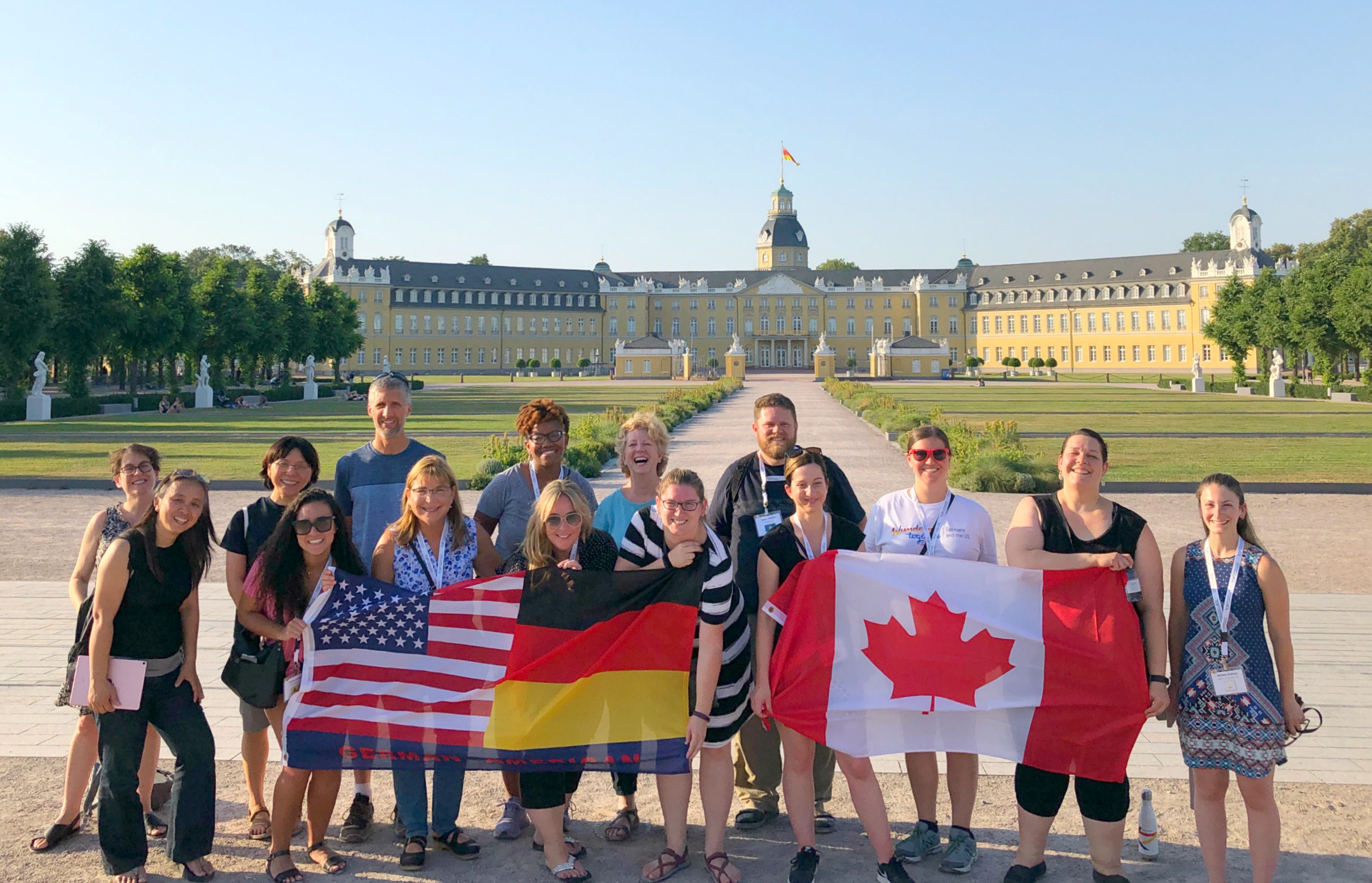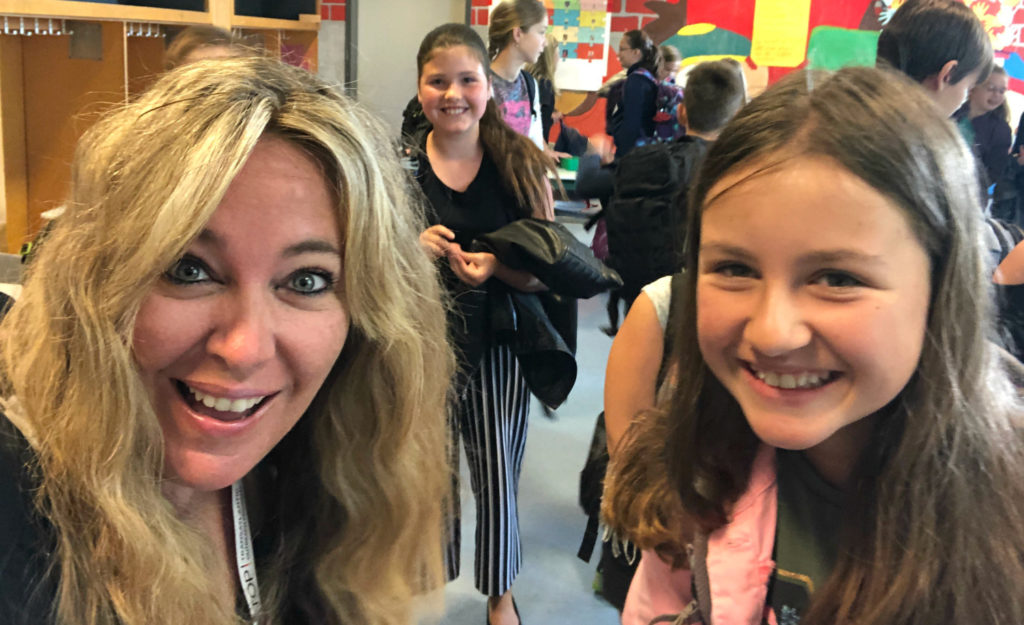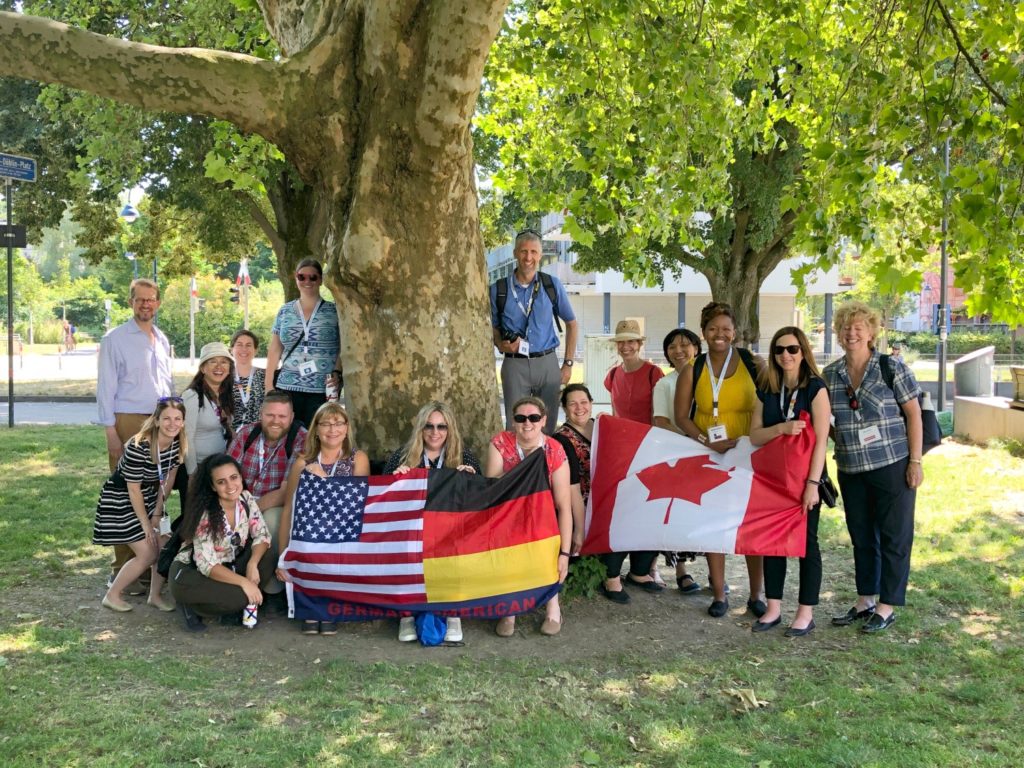
It might not be business card-official, but we’ll go ahead and call Gina Whitcomb our international education correspondent.
In 2017, Whitcomb, who teaches in the Anaheim Elementary School District, shared some highlights with us from a two-week trip to Senegal, where she and other educators learned about the West African nation’s school system and culture as part of a global learning initiative.
This summer she cracked open her passport yet again to spend two weeks visiting with school officials and students in Germany through the Transatlantic Outreach Program. She returned on July 14.
The Transatlantic Outreach Program, or TOP, offers study tours and resources to North American social studies and STEM teachers. The idea is to connect educators on this side of the globe with their German counterparts as a way to enhance both countries’ educational systems, bridge workforce gaps and strengthen transatlantic partnerships.

“It gives teachers the chance to explore modern Germany through hands-on learning, classroom visits and dialogs with German teachers,” said Whitcomb, a fifth-grade teacher at Betsy Ross Elementary School.
Whitcomb, who also traveled to Ecuador in 2018 to study caterpillars and climate change, applied for the Germany tour back in December. More than six months later, on June 28, she was headed to Washington, D.C. for an initial meet-up with other traveling educators. They all caught a flight to Europe the next day.
The team included 15 teachers — 13 from the U.S., and two from Canada — who had elected to focus specifically on the STEM subjects of science, technology, engineering and math. And here’s a fun fact: In Germany, the same subjects are known by a different acronym — MINT, which is short for “mathematik, informatik, naturwissenschaft und technik.”
“We visited all types of German schools for all ages, from elementary to high school to even vocational schools,” she said. “We learned about the school system, observed and participated in lessons, and even went on a field trip with an elementary school class.”
Prioritizing environmental education
She said her team primarily stayed in the Black Forest region in the state of Baden-Württemberg. There, they participated in an assignment that wouldn’t be atypical for German students — a nature walk designed to integrate mathematical concepts and problem-solving. Among their tasks, the group used math formulas to figure out the height of a large tree.
Understanding the natural environment and the need to ensure its sustainability are top priorities in German schools and towns, Whitcomb said.
As such, she and her fellow teachers visited a biogas plant to learn how locals are harnessing energy from organic waste and manure.

They visited the Karlsruhe Institute of Technology’s cloud lab, which analyzes the impacts of aerosols and can actually replicate clouds.
And the group went to the Freiburg neighborhood of Vauban, which is considered a model for sustainable urban development and eco-friendly living.
“As teachers, we learned the focus of the Germans on our environment is something we all should strive for,” she said. “Students compost, garden, recycle — it is the cultural norm. We can definitely learn from them as we work to make our planet and conservation a priority.”
Meanwhile, just as with her trip to Senegal, she also experienced some very human moments that demonstrated the kindness and generosity her hosts, as well as the universal nature of education.
“One elementary school had students sing a song to us in German, and it was so touching,” Whitcomb said. “The gist of the song is that school is more than the hours it takes to learn, and the song goes on to list what things school is to them.”
“Isn’t that the truth?” she said. “School is so much more than the hours it takes to learn.”
